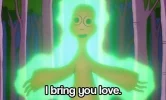My own reaction to your question, from a personal perspective of mindfulness, is to question your framing of the question.

As structured, your question implies that you need to somehow "earn" your way into a better version of yourself. I.e. the Camino and other spiritual preparation is a giant self-improvement project.
I would suggest that a better framework would be to drop the idea that you need to "do" anything at all. You don't need to "fix" anything because there is already nothing wrong with you. I would invite you to consider an alternative question of "what would it mean for your Camino, and your life, if you already have everything you will ever need?" In that light, the Camino can become an environment in which you can simply rest in each present moment, knowing that you need not do anything further.
The glib way of making this point is to consider the directive to "Don't just do something; sit there!"
As another way of explaining this, the Christian cultural/spiritual framework in which I was raised tends to be based on the idea that humans are flawed to begin with, and salvation or happiness are found via various paths requiring hard work, preparation, acts of devotion/sacrifice, or other "actions of merit" in which the flawed original state is gradually improved. I.e. one "earns" one's way via specific actions toward an enlightened state. I recognize this as a vast oversimplification; I intend for it to be only directionally correct and only for the purpose of making a more specific point in this specific context.
Alternatively, a Buddhist perspective to which I have migrated is grounded in the idea that humans are perfect spiritual beings to begin with, but that our human experience tends to cloud our ability to rest in that reality. In particular, we tend to allow our minds to develop "attachments" to specific conditions, ideas, actions, people or things external to ourselves, and then tie our salvation or happiness to a certain set of such external conditions / ideas / actions / people / things. True enlightenment, from this perspective, is found only when we let go of all of these attachments and realize that we are already perfect. We just need to get out of our own way. Then we are able to exist as our true selves, which turn out to be spiritual beings whose sole purpose is to provide lovingkiness and compassion to all other beings.
Putting this back into a Christian context, I think one could frame the Camino as an opportunity not to do anything with your own spiritual path, but simply to travel as a shining light of love and compassion who meets every other peregrino where they are, providing them with whatever they might need in that moment.
I.e. what would change about your Camino if you were already an angel?
As Buddhism is (from a Western perspective) not really a religion but more of a psychology or philosophy, it can be compatible with other faith traditions, but
http://www.amazon.com/dp/1401307787/?tag=casaivar02-20 by no means am I in any way suggesting you should not follow the path laid out by your own spiritual tradition. In fact, there is no need to even think of this as a Buddhist perspective if the label gets in the way. Mindfulness is a completely secular way of framing the same ideas (we sometimes say that mindfulness is just the dharma without the Buddha).
In that light, if this perspective is of further interest, my recommendation for an easy next step is the book "Wherever You Go, There You Are" by Jon Kabat-Zinn:
http://www.amazon.com/Wherever-You-Ther ... 1401307787
If this perspective is not of further interest, then similarly you should ignore it, as ultimately the path we are all on is to discover the framework that leads us to our own happiness, salvation or enlightenment.
Buen Camibo.























